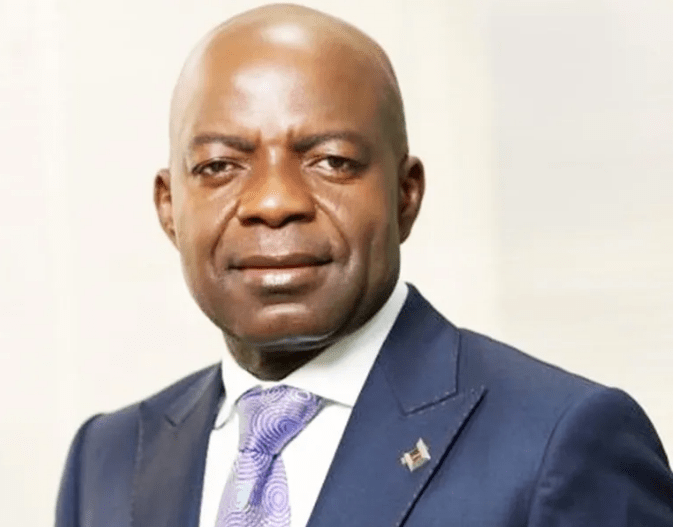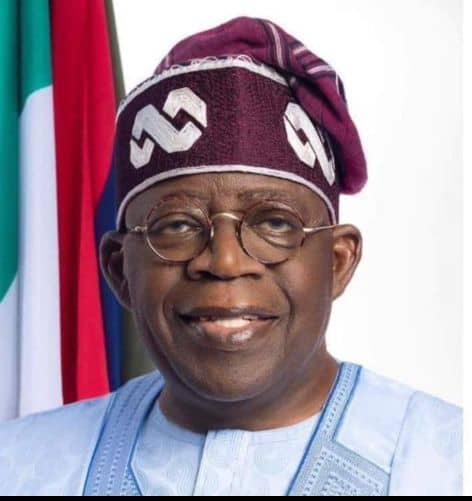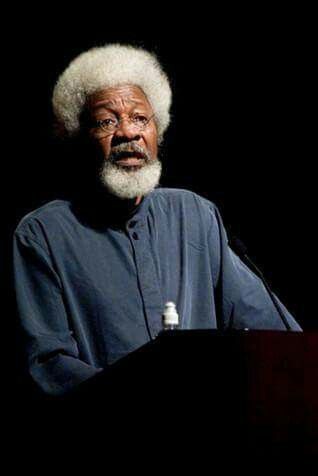Good News
Hitting the Ground Running?
Gov. Otti to Inaugurate 5 New Projects, Lay Foundation for Abia Industrial Park – Commissioner

Hitting the Ground Running?
Gov. Otti to Inaugurate 5 New Projects, Lay Foundation for Abia Industrial Park – Commissioner
By Anthony Beauty
Aba: Governor Alex Otti is set to leave his mark on Abia State with the inauguration of five significant projects and the foundation-laying ceremony for the Abia Industrial Park, scheduled for completion by the end of September.
This announcement was made by the Commissioner for Information and Strategy, Prince Okey Kanu, during a press briefing following the State Executive Council meeting in Umuahia. The Abia Industrial Park, situated on 1000 hectares of land in Owazza, Ukwa West Local Government Area, will be a multi-purpose hub featuring a modular refinery, gas plant, real estate, incubation center, and other essential facilities.
Commissioner Kanu emphasized that this project, which he described as “one of the signature projects of the Otti-led administration,” is designed to boost the state’s revenue and provide employment opportunities for its youth population.
When asked about any connection between this project and the previously promoted but unrealized Enyimba Economic City, Kanu asserted that the two were entirely distinct endeavors. He stated, “Light and darkness have nothing in common. The Abia Industrial Park being championed by His Excellency has nothing to do with Enyimba Economic City.” He went on to clarify that the Economic City project had acquired significantly more land than the industrial park.
Kanu assured that Otti’s administration was committed to delivering on its promises and that several other projects were ready for inauguration, including two specialist hospitals, three renovated General Hospitals, and three new road projects in Aba. Additionally, he mentioned ongoing work to improve street lighting in Umuahia and the upcoming six-lane Ossah Road expansion project, pending compensation for affected structures.
Addressing concerns about the dilapidated Aba-Port Harcourt expressway, Kanu disclosed that palliative work would begin within two weeks, following assurances from the Minister for Works, David Umahi.
Regarding security matters, Kanu stressed the government’s determination to combat criminality, especially kidnapping for ransom. The Special Adviser to the Governor on Security, Navy Commander MacDonald Ubah, emphasized the efforts of Operation Crush in degrading the capabilities of criminals, particularly in the Uturu/Isuikwuato/Umunneochi/Lokpa/Okigwe axis.
Ubah issued a stern warning to those involved in criminal activities, urging them to change their ways or prepare to face tough consequences. The government remains resolute in its mission to ensure the safety and well-being of Abia State residents
Federal Government
Tinubu Signs New Minimum Wage Bill Into Law

IduwiniVoice
Tinubu Signs New Minimum Wage Bill Into Law
By Tobouke JEMINE
President Bola Tinubu has officially signed the new minimum wage bill into law, marking a significant achievement for workers’ rights in Nigeria.
The signing ceremony, held at the State House in Abuja, concluded a period of extensive discussions involving government officials, labor unions, and the private sector.
This new legislation, witnessed by key members of the National Assembly, including Senate President Godswill Akpabio, is expected to improve living standards for many Nigerians and stimulate economic growth.
The bill has been met with widespread celebration, as workers and unions view it as a crucial victory for economic justice in the country.
Felicitation
Wole Soyinka at 90
Soyinka

Wole Soyinka at 90
Soyinka
We salute this great man of letters and democracy activist, and wish him more fruitful years in good health
Nobel laureate Prof. Wole Soyinka’s much awaited 90th birthday celebration, on July 13, was predictably preceded by various events, locally and internationally, celebrating the great man of letters and the historic milestone.
President Bola Tinubu, on behalf of the Federal Government and an appreciative country, renamed the National Theatre, Lagos, as Wole Soyinka Centre for Culture and the Creative Arts. “I am pleased to join admirers around the world in celebrating the 90th birthday of Nigeria’s iconic son,” Tinubu said in a statement, adding, “It is also fitting we celebrate this national treasure while he is still with us.”
Notably, the Royal Academy of Morocco and the Pan African Writers Association (PAWA) jointly organised an event, titled ‘Africa Celebrates Wole Soyinka in Morocco,’ where he was described as a “defender of African cultures.”
The release of his third novel, ‘Chronicles from the Land of the Happiest People on Earth’, in September 2021, after a nearly 50-year break from novel writing, demonstrated his staying power as a creative writer. He was 87 at the time. It also showed his consistency as a vocal campaigner for a better society. The book was described in the ‘Financial Times’ as “a brutally satirical look at power and corruption in Nigeria, told in the form of a whodunnit involving three university friends.”
Soyinka’s existence continues to emphasise the critical message of universal justice. He has gone to great and admirable lengths in pursuit of this philosophy, which is best encapsulated by his famous one-liner, “Justice is the first condition of humanity.” He has consistently played the important role of a defender of human freedoms, especially in Nigeria but also internationally. According to him, “The greatest threat to freedom is the absence of criticism.” His conscientious antagonism to the agents of darkness is recognised and respected to the point that his voice is constantly anticipated in response to reactionary forces.
Read Also: My wife adulterous, claims Super Eagles star in court petition
True to this characterisation, he has an impressive history of courageous interventions in his country’s trajectory, including, in particular, his sensational and mind-boggling mediation in the combustible 1960s political crisis in the then Western Region, his effort to avert the civil war that raged from 1967 to 1970, his committed opposition to dictatorship, and his unequivocal insistence on a truly democratic, accountable and participatory form of government.
It is a testimony to his indomitable spirit that unjust imprisonment, and forced exile on account of unmistakable life-threatening danger, proved to be weak restraining forces in his lifelong expression of the possibility of a better society.
Indeed, in Soyinka, there is a rare conflation of the artist and the activist at a superlative level. The portrait of the fighter is brightly coloured by creative essence. Undoubtedly, in his literary career, the icing on the cake must be the 1986 Nobel Prize for Literature, an honour he received in the same year he was awarded the Agip Prize for Literature. For the Nobel decoration, which is indisputably regarded as the world’s biggest recognition for literary excellence, he was painted as a master of form and content “who in a wide cultural perspective and with poetic overtones fashions the drama of existence.” He was the first African to win the prize.
There is no question that the accomplishment had the quality of a redeeming feature for the black man in a world corrupted by racism. He received the Special Prize of the Europe Theatre Prize, in Rome, in 2017, for “his art and his commitment,” and “bringing, in English, richness and beauty to literature, theatre and action in Europe and the four corners of the world.”
In 2014, he made the headlines following his rejection of the centenary award by the Goodluck Jonathan administration. The Federal Government had named 100 individuals to be honoured for their contributions towards the progress and unity of Nigeria, as part of the country’s centenary celebration, and he was recognised as an internationally acclaimed artist and literary icon. However, he described the inclusion of the late military dictator, Gen. Sani Abacha, “on the nation’s Roll of Honour,” as “this national insult.” He delineated Abacha as “a murderer and thief of no redeeming quality,” adding, “I can’t think of anything more grotesque and derisive of the lifetime struggle of several on this (Honours) List and their selfless services to humanity.”
This episode not only demonstrated Soyinka’s heightened sense of decency; it also instructively showed that he was not uncritical and indiscriminate in his acceptance of honour.
At the core of his expansive canonical oeuvre, which significantly reflects the influences of his Yoruba roots and covers drama, poetry, prose, music and film, are the human condition in the social context and the imperative of truth.
He is better known as a playwright, and his dramatic works include ‘The Swamp Dwellers’ (1958), followed a year later by a comedy, ‘The Lion and the Jewel’; ‘A Dance of the Forests,’ the official play for Nigerian Independence Day, October 1, 1960; ‘The Trials of Brother Jero’ (1960), ‘Kongi’s Harvest’ (1964), ‘The Road’ (1965), ‘Madmen and Specialists’ (1970), ‘Jero’s Metamorphosis’ (1973), ‘Death and the King’s Horseman’ (1975), ‘Opera Wonyosi’ (1977), ‘Requiem for a Futurologist’ (1983), ‘A Play of Giants’ (1984), ‘King Babu’ (2001) and ‘Alapata Apata’ (2011).
“Books and all forms of writing are terror to those who wish to suppress the truth,” according to Soyinka, a product of the University College, Ibadan, Nigeria; Leeds University, UK; and the Royal Court Theatre, London. He studied English Literature; and taught in universities at home and abroad. While at university in Ibadan, he co-founded the Pyrates Confraternity, a student organisation to fight corruption and promote justice, the first confraternity in Nigeria.
In the almost 40 years since he won the Nobel at age 52, he has not gone cold artistically and remains warm politically, which validates his well-garlanded distinction.
His awesome multidimensionality extends to his role as a former head of the Federal Road Safety Corps (FRSC), with the vision “to eradicate road traffic crashes and create a safe motoring environment in Nigeria.” His continuous interventions in the issues of the day are proof that the public intellectual can make a profound social impact.
A true hero, he remains a voice of global significance. His distinctive luxuriantly white Afro and beard complement the substance of his erudition and wisdom.
We congratulate him as he enters his nonagenarian years.
© Culled from the Nation Newspaper Ltd. All rights reserved – 2024.
Good News
Breaking: TINUBU NAMES NATIONAL THEATRE AFTER WOLE SOYINKA

IduwiniVoice
Breaking: TINUBU NAMES NATIONAL THEATRE AFTER WOLE SOYINKA
By Tobouke JEMINE
President Bola Tinubu has renamed the National Arts Theatre in Iganmu, Lagos, after Professor Wole Soyinka.
President Tinubu announced this in a letter he wrote to celebrate the Nobel Laureate in commemoration of his 90th birthday.
In the letter personally signed by the President and made available to the media today, he noted that the literary legend, the first African to win the Nobel Literature Prize in 1986, deserves all the accolades in this milestone “Having beaten prostate cancer, this milestone is a fitting testament to his ruggedness as a person and the significance of his work.”
